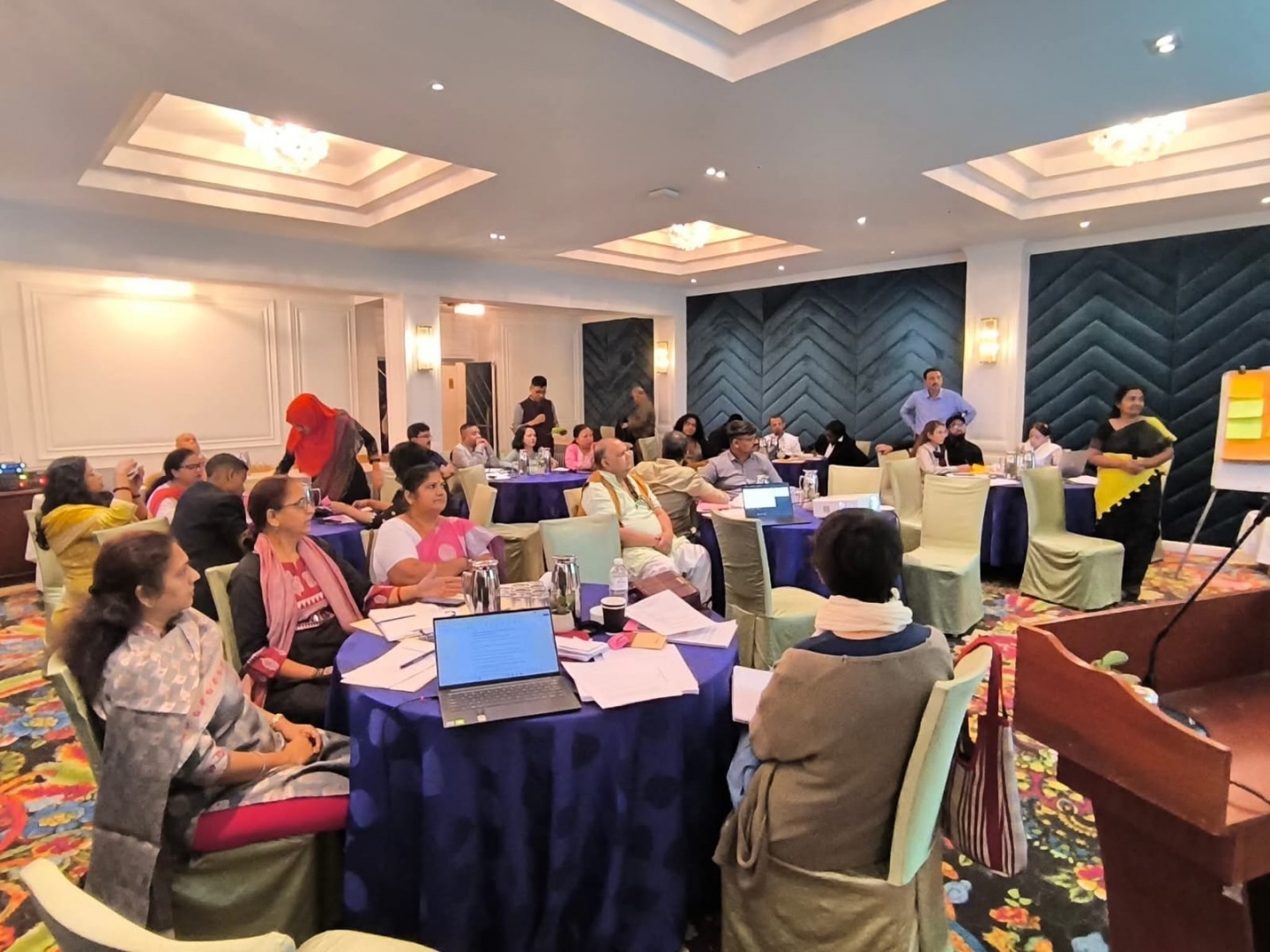Fighting for fair pay: South Asian unionists trained by IndustriALL – IndustriALL

IndustriALL Workshop on Advancing Pay Equity and Gender Equality
Introduction and Policy Reaffirmation
The workshop commenced with a strong reaffirmation of IndustriALL’s NO EXCUSE policy addressing gender-based violence, misogyny, and sexism. This initiative aligns with the Sustainable Development Goals (SDGs), particularly SDG 5: Gender Equality and SDG 8: Decent Work and Economic Growth. Participants engaged in interactive sessions, including a power walk activity designed to explore intersectional power dynamics within workplaces.
Workshop Focus and Key Modules
The training primarily focused on:
- Advancing equal pay for work of equal value
- Tackling gender pay gaps
- Promoting inclusive collective bargaining practices
Key modules covered included:
- Pay transparency and gender pay gap reporting: Understanding how to calculate the gender pay gap, what data to report, and the role of unions in promoting transparency.
- Gender-neutral job evaluation: Addressing how skills predominantly held by women are undervalued or overlooked, comparing job values, and eliminating gender biases in job evaluation and classification.
- Campaigning for living wages: Strategies to campaign and bargain for living wages, with a focus on ending women’s low pay.
Analysis of Workplace Power Structures and Legal Frameworks
Participants analyzed how workplace power structures disproportionately affect women and gender-diverse groups, contributing to pay inequity. The workshop explored essential concepts such as:
- Pay equity
- Equal pay for equal work
- Equal pay for work of equal value
- The gender pay gap
Group activities and discussions facilitated a deeper understanding of these concepts. Presentations on national legislation regarding equal pay in South Asia provided insights into existing legal frameworks and identified gaps, supporting efforts toward SDG 16: Peace, Justice and Strong Institutions.
Hands-On Activities and Strategies for Change
Interactive exercises highlighted how traditional job assessments often undervalue women’s roles, emphasizing the need for fair and bias-free evaluation systems. Participants learned how pay transparency can both expose and address gender pay disparities.
Strategies for campaigning for better wages, especially in female-dominated sectors, were discussed extensively. Participants developed actionable plans to advance pay equity, including:
- Conducting gender pay gap audits in workplaces with a high proportion of women
- Reporting on audit findings to promote accountability
- Promoting women’s inclusion in decision-making and negotiation processes
- Ensuring equity-focused collective bargaining agreements
Statements from Leadership
Armelle Seby, IndustriALL Gender Director:
“The training aimed at equipping our unions with tools and strategies to advocate for pay equity in their unions and workplaces and to push for real change at the bargaining table. It is part of IndustriALL’s commitment to advance gender equality and promote inclusion in workplaces and among affiliates.”
Ashutosh Bhattacharya, IndustriALL South Asia Regional Secretary:
“Pay equity is not just a women’s issue, it is a trade union priority. Our strategy aims to strengthen unions’ understanding of the gender-based wage gap and equip them with practical tools to advocate effectively for pay equity in the workplace. We must take action by empowering our affiliates’ concrete strategies, we ensure they are prepared to drive real and lasting change at the bargaining table.”
Conclusion
This workshop represents a critical step towards achieving multiple Sustainable Development Goals by addressing systemic gender inequalities in the workplace. Through enhanced union capacity and strategic advocacy, IndustriALL is advancing SDG 5: Gender Equality, SDG 8: Decent Work and Economic Growth, and SDG 10: Reduced Inequalities, fostering inclusive and equitable labor environments globally.
1. Sustainable Development Goals (SDGs) Addressed or Connected
- SDG 5: Gender Equality – The article focuses heavily on gender-based violence, misogyny, sexism, pay equity, and women’s inclusion, all central to achieving gender equality.
- SDG 8: Decent Work and Economic Growth – The emphasis on living wages, equal pay for work of equal value, and inclusive collective bargaining relates directly to promoting decent work and economic growth.
- SDG 10: Reduced Inequalities – Addressing pay gaps and promoting equity-focused bargaining helps reduce inequalities within workplaces and society.
2. Specific Targets Under Those SDGs
- SDG 5 Targets:
- Target 5.1: End all forms of discrimination against all women and girls everywhere.
- Target 5.5: Ensure women’s full and effective participation and equal opportunities for leadership at all levels of decision-making in political, economic and public life.
- Target 5.A: Undertake reforms to give women equal rights to economic resources, including access to ownership and control over land and other forms of property, financial services, inheritance, and natural resources.
- SDG 8 Targets:
- Target 8.5: Achieve full and productive employment and decent work for all women and men, including equal pay for work of equal value.
- Target 8.8: Protect labour rights and promote safe and secure working environments for all workers, including women.
- SDG 10 Targets:
- Target 10.2: Empower and promote the social, economic and political inclusion of all, irrespective of age, sex, disability, race, ethnicity, origin, religion or economic or other status.
3. Indicators Mentioned or Implied to Measure Progress
- Gender Pay Gap Reporting Indicators:
- Measurement of the gender pay gap through pay transparency and reporting mechanisms, as discussed in the workshop.
- Indicators related to the calculation and reporting of wage differences between men and women performing equal or comparable work.
- Participation and Inclusion Indicators:
- Indicators measuring women’s inclusion in decision-making processes and collective bargaining.
- Indicators tracking the representation of women in leadership and negotiation roles within unions and workplaces.
- Living Wage Campaign Indicators:
- Indicators related to the implementation of living wages, especially in female-dominated sectors.
- Monitoring changes in wage levels and reductions in low pay among women workers.
4. Table: SDGs, Targets and Indicators
| SDGs | Targets | Indicators |
|---|---|---|
| SDG 5: Gender Equality |
|
|
| SDG 8: Decent Work and Economic Growth |
|
|
| SDG 10: Reduced Inequalities |
|
|
Source: industriall-union.org








